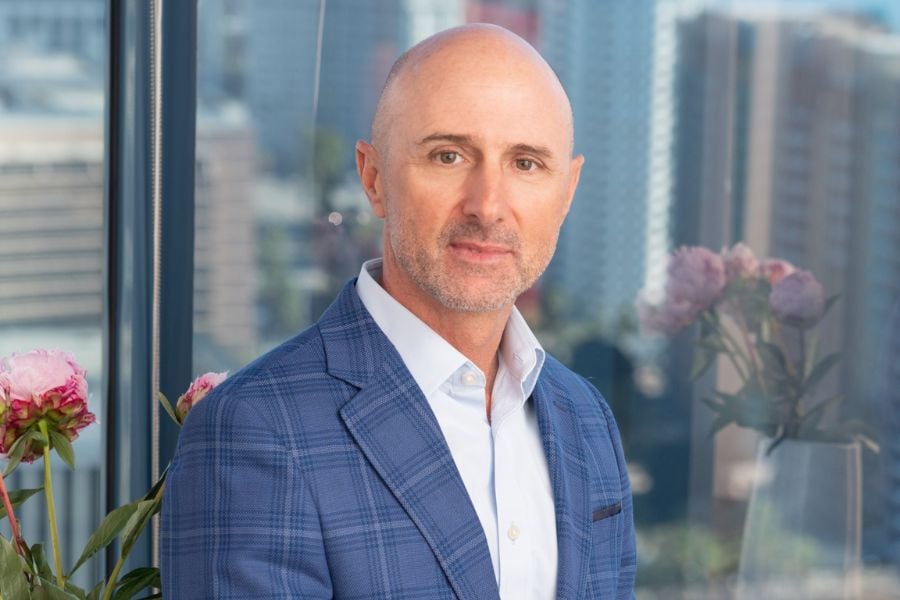

It’s no secret that financial advisory firms face the ongoing challenge of attracting and retaining NextGen talent, a critical task for sustainable growth in the industry.
After all, finding and retaining talented and valued advisors is one of the solid foundations for ensuring the growth of any RIA. And with over a third of US advisors set to retire within the next decade, there’s never been a greater time for firms to deploy new strategies and reconfigure their employment policies to find and nurture the next generation of advisors.
JC Abusaid, CEO and president of Halbert Hargrove, will be one of the main panelists to speak on this topic at the upcoming RIA Activate California event in November.
Abusaid outlines a few strategies firms can take to attract and retain NextGen talent. For one, Halbert Hargrove is focused on offering a robust internship program for their new talent, he highlights. One of the reasons the program has been so successful, Abusaid says, is attributed to the hands-on work.
“We don’t offer menial tasks like filing or cold calls, we have a robust program,” he admits. “We give them a real job and they get involved with supporting the team and doing actual work.”
After prospective advisors finish their internship, they are made “to commit to a longer-term internship,” he added.
“It's not a summer internship, it's a continuous internship. The idea is they really get to do work. We get to see how they work and [if] you do this enough, you create a pipeline and a reputation in the area.”
While hiring external advisors can sometimes work, Abusaid admits that their most successful strategy has been growing talent internally. While the method can be time-consuming, it also ensures that the firm develops advisors who are deeply aligned with the company’s culture and values.
Abusaid explains that the firm’s new hires typically start in administrative roles, even if their long-term goal is to become an advisor. This progression allows employees to learn the business from the ground up.
“We just put them on a track to get [to the advisor role]. We've been growing our own and that’s been unfortunately, the most successful way,” he says. “When I say unfortunate, it’s just because it takes time. If we need an advisor, it's not like we can produce one quickly, we have to grow them and that takes mentorship [and time].”
Having an internal growth strategy seemingly resonates with NextGen advisors, Abusaid says, who are increasingly confident and eager to take on leadership roles.
“They no longer feel like they need grey hair to be an advisor,” he notes. “They come in asking for leads, ready to close deals, do financial planning and serve clients.”
Another component of the firm’s retention strategy is offering real equity ownership to their employees. Abusaid makes it clear that ownership stakes help employees feel more invested in the firm's success.
“We don’t offer synthetic equity,” he says. “People are buying actual equity, they’re seeing distributions, and get very specific updates on how the firm is performing.”
Abusaid also acknowledges the even though the firm has “very purposely” figured out how advisors participate in the equity, it also keeps evolving.
“If there’s a lesson for anybody, just because it worked this year, doesn’t mean it works next year. You have to keep changing it and adjusting,” he asserts.
Ultimately, at the heart of any firm’s success for attracting and retaining talent should be its strong company culture. Abusaid emphasizes that culture is the foundation of everything.
“If your culture isn’t defined, you’ll face an uphill battle,” he warns.

It's a showdown for the ages as wealth managers assess its impact on client portfolios.

CEO Ritik Malhotra is leveraging Savvy Wealth's Fidelity partnership in offers to Commonwealth advisors, alongside “Acquisition Relief Boxes” filled with cookies, brownies, and aspirin.

Fraud losses among Americans 60 and older surged 43 percent in 2024, led by investment schemes involving crypto and social manipulation.

The alternatives giant's new unit, led by a 17-year veteran, will tap into four areas worth an estimated $60 trillion.

"It's like a soap opera," says one senior industry executive.
RIAs face rising regulatory pressure in 2025. Forward-looking firms are responding with embedded technology, not more paperwork.
As inheritances are set to reshape client portfolios and next-gen heirs demand digital-first experiences, firms are retooling their wealth tech stacks and succession models in real time.
